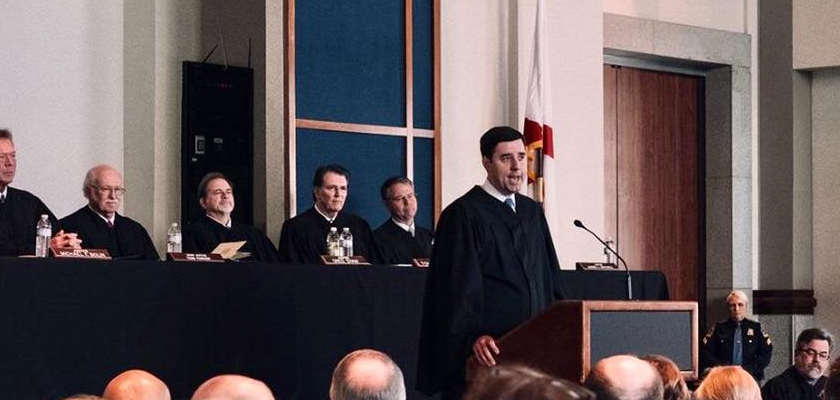Alabama Supreme Court Justice Jay Mitchell published an op-ed in the Wall Street Journal on Friday expressing concerns about a proposed uniform bar examination due to its commitment to "ensure that diversity, fairness and inclusion pervade … test products and services."
The National Conference of Bar Examiners's (NCBE) proposed uniform bar exam, "NextGen," is slated for a 2026 debut, which means this year's first-year law students will be the first class subject to the exam. Law schools will quickly have to adjust their curricula to meet the test standards.
The NCBE's test would be shorter than the current two-day exam and will test prospective attorneys in fewer subject areas. Some areas that wouldn't make the cut include family law, trusts and estates.
Mitchell suggested that this could negatively impact attorneys who plan to live in rural areas, where legal practice typically revolves around family law and probate matters.
"These residents need to know that new lawyers have the foundational knowledge to serve their needs or at least the threshold understanding necessary to refer them elsewhere," he wrote. "If these areas of legal practice are eliminated from the exam, it will be difficult to replenish the requisite knowledge in our lawyer ranks."
Mitchell said the NextGen exam would also feature client-interaction excises, which he questions due to the NCBE's ability to grade the test portion objectively.
"Some of these changes may prove salutary," Mitchell wrote. "Working with clients, for example, is an essential feature of any law practice. But the new exam also seems far less rigorous and could hamper the ability of states to determine who should be admitted to practice law. The results could be ruinous. States can't maintain functional court systems unless clients and judges can trust the basic competency and integrity of attorneys admitted to the bar."
Nevertheless, Mitchell suggested his major concern with the NCBE's exam was the organization's commitment to a "diversity and inclusion" agenda, which he believes emphasizes characteristics such as race, sex and gender identity and detracts from an emphasis on merit.
"The idea seems to be that any differences in group outcomes must be eliminated—even if the only way to achieve this goal is to water down the test," he wrote. "On top of all that, an American Civil Liberties Union representative provided conference attendees with a lecture on criminal-justice reform in which he argued that states should minimize or overlook would-be lawyers' convictions for various criminal offenses in deciding whether to admit them to the bar."
Mitchell insisted the NCBE must disclose information about the test and that states should maintain the option to retain the current bar exam for five to 10 years to see how the new exam pans out in states that choose to accept it.
To connect with the author of this story or to comment, email will.blakely@1819news.com or find him on Twitter and Facebook.
Don't miss out! Subscribe to our newsletter and get our top stories every weekday morning.










